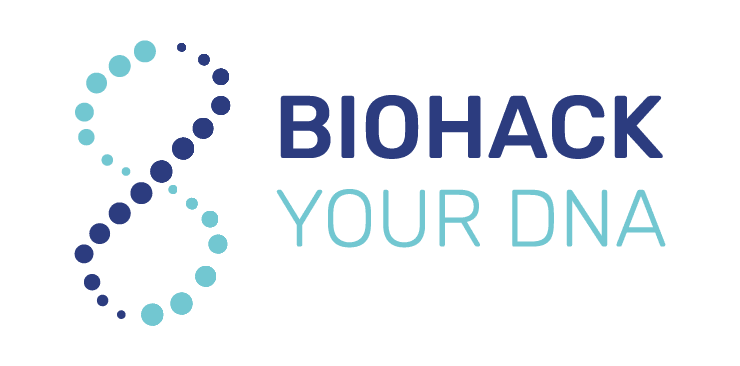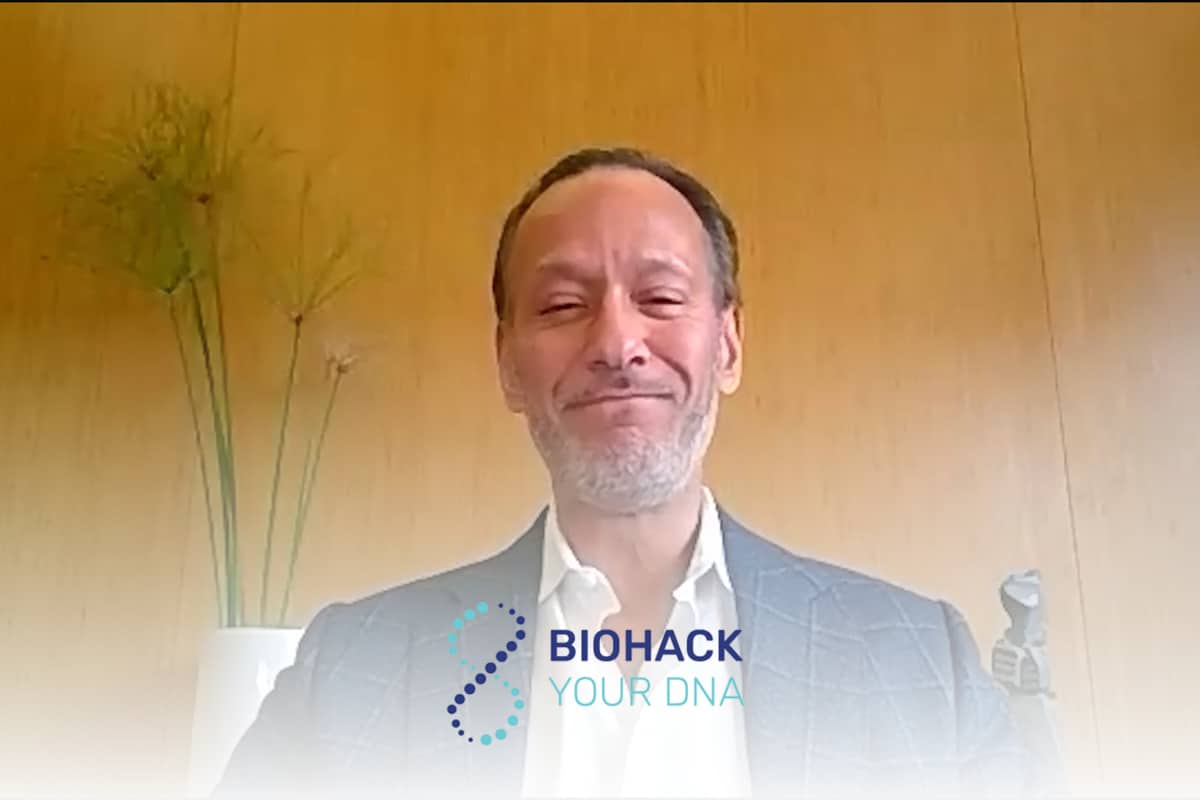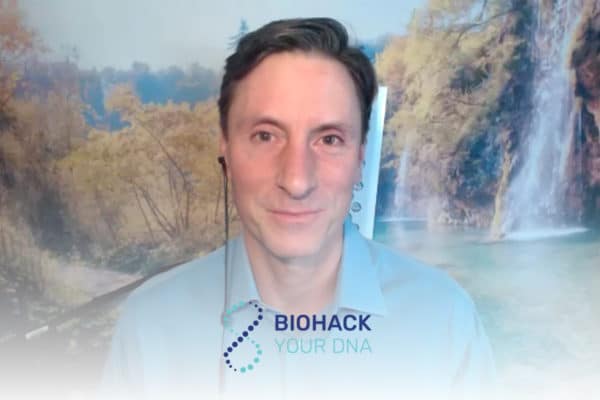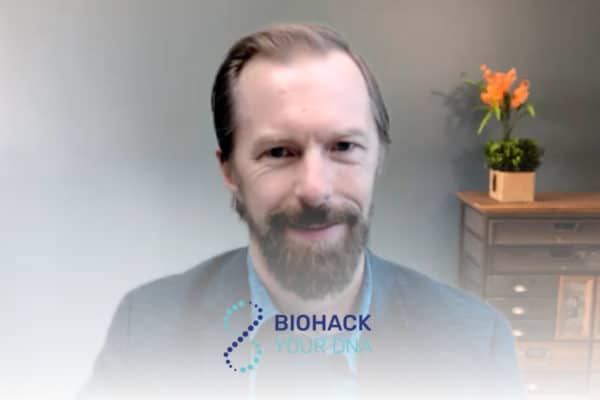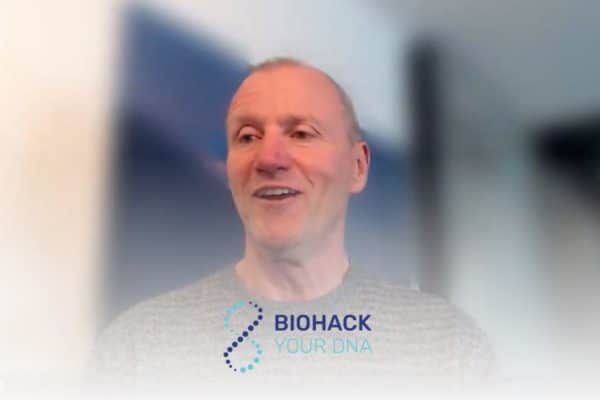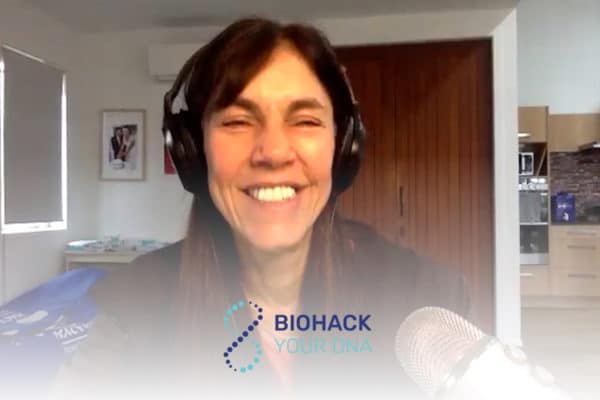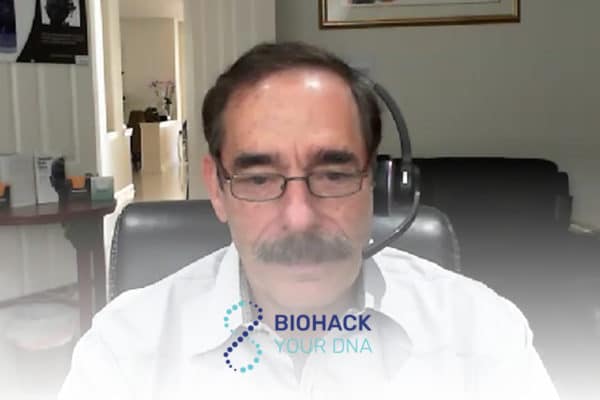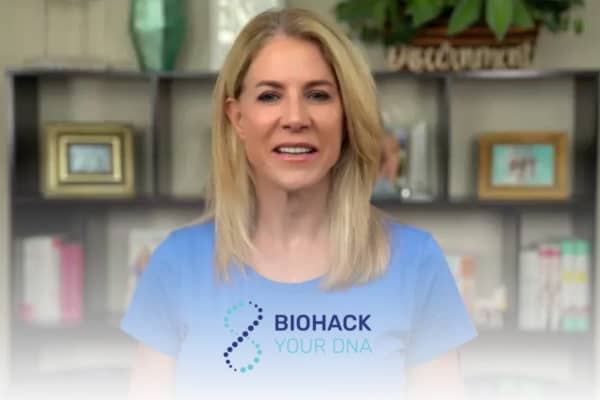Join the discussion below

Kashif Khan is the Chief Executive Officer and Founder of The DNA Company, where personalized medicine is being pioneered through unique insights into the human genome. With the largest study of its kind globally, The DNA Company has developed a functional approach to genomic interpretation overlaying environment, nutrition, and lifestyle... Read More

Dr. Raffaele received his B.A. in philosophy from Princeton University and his M.D. from Drexel University Medical School in 1989. He trained at The New York Hospital/Cornell University Medical Center and was formerly a clinical assistant professor of medicine at Dartmouth Medical School. Dr. Raffaele is board certified in internal... Read More
- Why aging should be managed like any other health condition
- What’s being used in the top private clinics
- The next big health scare that even healthy people have to prepare for
Related Topics
Aging, BioHacking, Biomarkers Of Aging, Cardiovascular Health, Comprehensive Health Assessment, Diet, Drinking, Exercise, Hemoglobin A1c, Hormone Optimization, Lifestyle, Liver Function, Longevity Medicine, Maintenance Program, Medications, Normal Range Medicine, Optimal Health, Organ Systems, Physioage Health Analytics, Physiological Aging, Preventive Medicine, Risk Factors, Sleep, Smoking, SupplementsKashif Khan
All right, everyone, welcome back. We’re joined today by somebody who I was excited to speak to because I actually ran into him a few years back when I was very early stage in learning about this world of anti-aging medicine, genetics, microbiome, and all these things I had never heard of before. And from all people I had seen at this massive conference where there was 6,000 people in Las Vegas, Dr. Joseph Raffaele stood out to me. I was like, one day I gotta talk to this guy and work with him somehow because he knows what he’s doing. You know, fast forward a few years later, we just spoke a couple weeks ago on the topic of telomere and it reminded me of the brilliance I heard when I sort of walked by him at that conference a couple years ago. But first of all, welcome. Thank you for joining us.
Dr. Joseph Raffaele
Thank you for having me, Kashif.
Kashif Khan
So everybody, I mean, there’s a lot of people here that have seen and heard you speak before and it comes to that whole space of age related medicine where we’re saying that medicine is not necessarily, how do you treat illness but it can be how do you prevent or how do you extend life. How do you, so put that in sort of a nutshell of what is even possible in terms of stepping out of the sort of primary care clinical world and saying there’s a whole other way to look at medicine.
Dr. Joseph Raffaele
Sure and I did exactly that about 25 years ago when I was practicing primary care internal medicine and treating patients for their complaints and their illnesses and their acute diseases with some lip service to prevention, you know, colonoscopies, mammograms, counseling about diet, lifestyle, et cetera but not with really any idea that there was actually a different whole paradigm to approach healthcare which is actually healthcare not disease treatment. Typically you go to your doctor to get treated for something or to have conditions managed, and what years of very voluminous research on the aging process has shown us is that the bedrock of most of those diseases started to be created a decade or two or even three before the actual symptom shows up that is called a disease. And so, I started to explore that literature and found that you’re much better off looking at, with the exception of perhaps infectious disease and we’ll talk all about the immune system and how that does fit into this model as well.
But with the exception of getting sort of in an accident or hit by a bug, in Western developed countries they’re degenerative diseases of aging and then neoplastic diseases. And those all start many, many years before with dysregulation of organ systems, physiological systems and there’s ways to measure those. There’s ways to monitor the effectiveness of treatments. And there is treatments both from lifestyle, diet, exercise, supplements, medications, hormone optimization all those things to not only prevent the diseases but also to maintain optimal functioning of organ system. So care of one’s health, maintaining optimal health as you age is the paradigm shift I think started back then but is really getting a full head of steam now.
Kashif Khan
Yeah, and I think a lot of the technology that was needed pioneers like yourselves pushed it ahead. So, there was thinking and there was theoretical work but now the ability to measure where it’s even cost effective and available to more people makes it sort of prolific. And when we look at things we kind of think the same way but we only have one tool, we look at your genes and we try to be predictive in terms of, again, which organs may suffer, where the inflammation may hit, why inflammation may hit. Meanwhile, you have tools where you can measure in time. Like there’s things that you’ve curated or even built. So, walk us through some of those things that you may do if somebody walks into your clinic say tomorrow.
Dr. Joseph Raffaele
Yeah, so what we typically do, I mean, people don’t come to me with a sort of single complaint typically. Although, I still probably see some women and men for initially their, women and their complaints of menopausal symptoms and interposal symptoms. But a lot of patients now are coming particularly because of the kind of practice that I have where it’s a much more comprehensive view and we do a whole battery of tests to assess two things. One is, where you stand in relation to people your age in terms of the functioning of major organ systems and those are called the sort of biomarkers of aging. And then, even systems and measurements are routinely done but other ones as well that aren’t necessarily as highly correlated with aging as a biomarker of aging is, but we know what’s a good level on a bad level. We do a few hundred different types of tests on patients to give an idea about what their overall physiological age is, the age of their major organ systems.
And then also give a report card, it’s actually graded across the spectrum of the results that you can get for any individual tests. For instance, hemoglobin A1C, LDL cholesterol, you can get more esoteric in various other ones to then give them an idea about what their sort of optimal health and functioning is. And at that point, if it’s not as optimal as it could be then we start to target therapies toward them in a stepped approach from the least risky which is, you know, if you’re getting three hours of sleep at night that’s the first place to start. You know, if you’re smoking and drinking excessively and eating a poor diet then, you know, those things. But then, if the markers don’t respond fully then we start to add supplements, medications, and then potentially other types of therapies that sometimes I send off to my other colleagues to do stem-cell therapies, et cetera. So the idea is really to get a very, very robust picture of where somebody is so that we know they may be at risk for something many years down the line but even before then that they’re are functioning and that organ system is not as optimal as it could be.
Kashif Khan
So when you’re looking at the results are you… So, a big part of who does a better job is the interpretation, right? So, in every business there’s kind of industry standards. So what you’re looking at, are you looking at things differently? Meaning this marker that may mean 7 outta 10 means 9 outta 10 to you?
Dr. Joseph Raffaele
Yeah, I mean, so for instance, take a typical test. I mean, I’ll just start with sort of a routine test that virtually every doctor in primary care offers, a chem screen within that there’s creatinine and then there’s liver function tests. I mean, you’ll see a normal range, right? For ALT it might be 10 to 45 or something like that. And typically the way medicine is practiced if they don’t see it flagged off as high or low, then they kind of ignore it saying it’s okay. And I call that normal range medicine which is okay if you’re looking for diseases because the disease is defined when you’re outside of those ranges. But, biological variables are continuous. Lemme say that again, biological variables are continuous. They are not dichotomous where you either have it or you don’t have it.
Kashif Khan
Right.
Dr. Joseph Raffaele
Even with infectious diseases, you can get a little inoculum but not a full inoculum and sometimes people will get hit with COVID and they won’t have any symptoms, sometimes they get enough of an inoculum then they’ll have serious symptoms. But it’s continuous. And so to say that, you either are normal or abnormal at a particular cutoff because you’re within 95% confidence intervals of all the people have gone to that lab, doesn’t make much sense if you think about biological variables as continuous. So, I think of them as being able to be interpreted within the full range. And there are lots of studies showing that, for instance, ALT that’s just below that upper end of say 45 is associated with considerably increased cardiovascular risk. Whereas, one that’s just above the bottom there’s sort of an optimal.
So we’ll give a grade for diseased fatty liver or hepatitis then after that borderline, average, healthy, and optimal. Then, for your GTT, for instance, you wanna be in single digits on that. I mean, that’s where you wanna be because that’s a liver that’s not inflamed, it’s not leaking enzymes, there’s no fatty liver, there’s not a lot of toxins going on. So to tell a patient that they’re moving within normal range from average to healthy and then to optimum is important work that will pay dividends down the line. Likewise, for hormone optimizations, the craziness where if your testosterone’s 302 you have normal testosterone but if it’s 298, you have hypogonadism. I mean, that doesn’t make any sense, right? Somebody that is at 302 is a hell of a lot more like somebody, symptom wise, who’s at 298 than someone who’s at 600, 700, 800.
So, the software that I’ve developed, the PhysioAge health analytics, helps doctors to look at all of these numbers with a spectrum to get a grade on them. And then in addition, the more esoteric markers that we do that are biomarkers of aging are also integrated into the software. So, you can look at the aging process but also at individual risk factors like hemoglobin A1C. Some people will say, well, if it’s below 5.7 who cares? I mean, then you’re good. But, no. I mean, you’re better off if you’re at 5.2 which is the very sort of bottom end. I mean, if you’re below five you’re even better. I don’t know what it is in, I forget off the top of my head it was in the metric units, but that’s sort of the range of the normal. So, that’s the tool to practice healthcare and not normal range medicine so that you can keep somebody functioning as higher level as possible for as long as possible.
Kashif Khan
So the interpretation revolves around as opposed to waiting for the warning flag or the red flag, it’s about maintaining somebody at sort of that state like this is where you’re supposed to be, right? So, it’s more a maintenance program than a reacting to the emergency program.
Dr. Joseph Raffaele
Yeah, I mean, it’s approach that recognizes that peak physiologic function for most organ systems is somewhere between 25 and 30 years of age. And after that most systems, not all, but most systems lose between a half to 1% of function per year in almost a linear fashion from sort of 25, 30 to 65, 70 and then it can accelerate depending. And then once you get up higher ages they have different kinds of genes in centenarians and then kind of levels off there. But recognizing that and saying, okay, let’s try to maintain as close to that optimal function as possible and understanding of the risk and benefits of any particular therapy that you’re gonna apply to maintain that.
Kashif Khan
Right. Okay. So you’ve looked at blood markers and you try and interpret it for optimal health versus disease or symptom masking. Then when it comes to the solutions how do you navigate a system where the tools are designed to do exactly that, mask and suppress symptoms versus optimize somebody ’cause there’s no pill you could prescribe for someone who’s considered healthy but you wanna get them a little healthier and you want that aging to slow down?
Dr. Joseph Raffaele
Well, look you can. I mean, that’s . I mean, that’s part of the change in the thinking about it. So for instance, we measure something called central arterial pressure which is a way of looking at essentially what you would get if you had a catheter in the aorta but the instrument can look at the wave form in the brachial artery or in the radial artery. It looks like a blood pressure cuff but it does, it’s much more sophisticated device than that and gives you something called pulse wave analysis. And that will tell you how stiffer arteries are. And that happens way before you start to get actual hypertension.
The increase in stiffness that occurs you’ll see a slight increase in systolic pressure that doesn’t quite reach the cutoff, it’s been coming down for good reason from 140 to 135 and now talking about 120 being more optimal. But if somebody comes in and they’re say 45 years old and they have an arterial stiffness that’s more like an 85 year old and they’re still not hypertensive and you’ve tried weight loss, sort of exercise, supplements, you know, Mark Houston’s talked about a lot of different supplements you can take; there’s Forty, there’s Elderberry, Hawthorn, and et cetera, meditation. If those aren’t bringing it down, then you can use an angiotensin receptor blocker or an ACE inhibitor, or a calcium channel blocking. You don’t wanna use a beta blocker ’cause it doesn’t lower central arterial pressure It lowers cuff pressure, but it doesn’t lower central arterial pressure. And I have patients who don’t yet have hypertension on therapies like that. Typically, they’re patients that have a strong family history of central hypertension.
And so, I’m doing them a favor because those medications are sort of like vitamins for the arteries. I mean, they reduce inflammation, they’re associated with decreased risk of diabetes, some of the angiotensin receptor blockers can lower cholesterol a little bit. So yeah, I mean, that’s the hallowed practice of off-label medicine practicing which allows you to do that in the context of the individual patient and their needs and your medical judgment. This is also backed by studies that show there are these benefits at these levels of lower pressure. So yeah, I mean, absolutely we have those tools. Some medications like some pain medications they’re there to mask the pain but the therapies that we apply are to reduce inflammation, to improve the ability of cells to regenerate, activation, there’s antioxidant therapy, all those things aren’t masking symptoms they’re affecting the aging of the organ system that needs help.
Kashif Khan
And when you’re doing that type of work, I mean, so the way you’ve just spoken of what you believe the medicine of aging to be, there’s a lot of companies out there that are now coming out with sort of biological age products but they’re very siloed looking at very specific things. For example, a product that looks at methylation markers, there’s another product from biome that looks at gut microbiome and mitochondrial function. So, are these sort of independent tools enough, or are they like a snapshot? How do you convince people or how do you do what you’re doing which is I guess more comprehensive ’cause you’re looking at organ system to make that sort of available to people?
Dr. Joseph Raffaele
Yeah, so I think a big question early on in the field let’s say the mid to late 90s and early 2000s was, you know, what’s the best biomarker aging? Which is the one that met the criteria that the National Institute on Aging sort of established which if taken in middle age could predict morbidity and mortality toward older age and was sort of not invasive, and had high accuracy, and could be used in animal models and also in humans. The NIA failed to find a biomarker that met those criteria ’cause it was really kind of a crystal ball. I mean human biology, mammalian biology and even lower sort of less complex organisms is super complex. Then after that, so telomeres were pretty hot biomarker for a while there, DNA methylation that you mentioned another one, the one I mentioned is a pretty close correlate of chronological age arterial stiffness, one that is often used in the clinic pulmonary function testing biometry, FEV1 highly correlated with chronological aging huge studies of hundreds of thousands of subjects.
Most biometrics give you a lung age and we do as well in our practice. But none of those individually gives you a robust picture of the full aging process. We put together panels of them where we look at arterial stiffness, pulmonary cognitive function through a battery of tests that CNS Vital Signs does, skin elasticity, body composition, et cetera and put those together in multiple linear aggression models we looked at other kinds of more sophisticated models and you can spit out a number and we do, it’s called the PhysioAge. But what we’re learning and I think is becoming quite well accepted at this point is that there’s no single biomarker of aging that captures all the important aspects of aging and also within individual and certainly within populations, people age at different rates that can be vastly different even within themselves. Like I have patients that come in we’ll have a PulmoAge, that’s what we call the FEV1, of a 70 year old when they’re 50 and yet they have a cardio age of a 45 year old and people will say, well, these aren’t very accurate markers that you have. I mean, what the hell? You’re not predicting the chronological age very well.
Well, I’ll tell you the truth is, people have strong systems, they have weak systems and it could be from genetics, what you’re doing? It could be from lifestyle. It could be from environmental toxins, infectious agents. As we age, even twins will diverge monozygotic twins, identical twins, will diverge as they get older depending on the slings and arrows that their bodies have been subject to. And so, the more markers you have the better you’re able to target your therapy toward the system that that is weaker and show up the systems that are stronger. Even pleiotropic biomarkers like DNA methylation which is gene expression patterns depends on what they’re trained on. If they’re trained on chronological age, they’re somewhat useful but they’re not that useful.
The newer ones, the second generation ones, are trained on other biomarkers of aging, routine blood tests that have been correlated with mortality and chronological age. So, well, I think what we’re learning is that and particularly with the computing power that we have now, the more markers you have of all different systems from the macro level, to the organ system level, to the physiological level, down to the molecular level you get a more robust picture and a better way of assessing the effectiveness of your therapies and also potential off target effects that may or may not be beneficial.
Kashif Khan
So what you said there was fascinating because people that work on anti-aging medicine, I mean talking about the actual patient, the consumer, they’re looking for precision, they’re looking for some personalization and that’s why they spend the money and it’s out of pocket, they’re doing this . And what you’re saying is that essentially the tools that have been curated have been driven back to this one size fits all. Whereas personalization is, you need to look at each organ and system and deal with one independent of each other. That’s precision. Precision isn’t this marker said my biological age is 58, so let me do some detox, right? Because you don’t know what to work on.
Dr. Joseph Raffaele
Yeah, I mean, so I think that, the way I would put that is pretty similar but I would say that, you know, look each company that offers a marker or an instrument or some panel of markers has its strengths and the things that they can do well and then it has its weaknesses. And precision medicine is to get, as you’re saying, as robust a picture as you can and as granular a picture as you can of the individual’s aging process because there is that variability between individuals and within individuals that were becoming more and more conscious of. And I can tell you having measured thousands of patients, what you don’t see is, someone has the same age of their anterior arteries, the same age of their lungs, the same age of their skin, their cognitive function as their chronological age.
There’s nobody that comes in at average for all those organ systems; some are very high, some are very low and it’s dependent on genetics and all the other things I talked about. And you need to know that. The thing I don’t like about what happens in social media is when you have people that take scientific literature that’s legitimate, you know, the conclusions of the study are legitimate but then say it applies to everybody when it really only applies to the person who’s exactly like the average person in that study and that’s not that many people out there. So they’ll say, well, everybody should do this ketogenic diet or everybody should take this supplement. A classic example is Metformin. I mean, everybody’s saying, be on Metformin, it’s like the longevity drug. There’s great data showing people in their 70s and older who are taking Metformin die at a lower rate even if they have type 2 diabetes or are a little bit overweight and have less cancer and cardiovascular disease than people who are the same but aren’t on Metformin.
Well, that may be true. And I think there’s good data for that and TAME trials, the upcoming trial is gonna look at Metformin in aging, may show those benefits are there and in a controlled trial but most of those people are not exercising every day, they’re not lean, they’re not eating a good diet, their hemoglobin A1C is not in the optimal range, their insulin sensitivity is not in the optimal range, or sort of sedentary a little overweight, and have inflammation going on. Metformin is great for them, but not for people… I mean, I don’t take Metformin because I don’t fit in any of those categories. And I’m not saying Metformin might not be beneficial for me, but the study hasn’t been done to show that. And that’s the thing when you get back to talking about precision and personalization of it, that’s what I do for my patients. They come to me and they say, well, I’ve been reading about this. I’ve been hearing about that. My friend’s doing this. Should I be doing it? And I can give them an answer based on the very complex and robust evaluation of them that I do.
Kashif Khan
And often, the most challenging person to our patient to deal with, is a person who’s doing well because the delta value between where they’re at and where you can get them to it’s kind of a challenge, right? Dealing with a pro athlete who’s got the best of everything and get to be further, how much further can I take you versus, like you said, in those studies. In fact, I think Harvard posted something about five simple things you can do to add 14 years to your life. And it was basically like; exercise, eat properly, don’t drink, don’t smoke. So the average person, you’re speaking to a paradigm where let’s just get the habits right. Let’s get you to a better level of health so you’re not susceptible to all this stuff.
So going back to this, you mentioned telomeres a couple times. I know you recently hosted a summit where literally thousands of people enrolled to learn about what you had to say there and there’s a lot of buzz around understanding the telomere. So, for the layman that has never heard that word before, what does that mean? How does it work? Why is it important?
Dr. Joseph Raffaele
So, telomeres are the caps on the end of your chromosomes that serve as molecular clock. Basically, your DNA repair mechanisms repair. When you get a mutation or oxidative stress causes the problem with your DNA, it gets damaged doesn’t like to see single ends or what we call linear chromosomes. So you have to coil it up into a little cap that’s the ends of your chromosomes and every time your cells divide those ends of your chromosomes get a little shorter. Now, the way in which telomeres are designed, the DNA that’s in them is noncoding. So it’s TTA GGG repeats of 12 to 15,000 base pairs or what we call nucleotides, two nucleotides as a base pair. If you lose then you don’t lose any information for making proteins or other things that are important for human physiology. But when they get little bit, if they divide and divide and divide and they get too short then the cell can no longer divide.
And that’s a problem for tissues like your immune system which has to divide a lot to respond to tumors to keep them at bay, into infectious diseases particularly viruses, or the stem cells that sit in your muscles that have to respond to breaking down muscle fibers muscle cells with exercise and replenish them, or your liver stem cells. If their telomeres get short, then they can no longer do their job and they can’t replenish those tissue. And that’s kind of a sort of a hard end to how long you can stay on this planet, if all your telomeres and your stem cells get too short to divide, you don’t live beyond that. The other thing that happens when your telomeres get short particularly in your immune system is that those cells don’t just stop dividing they don’t like what they’re supposed to do the cell doesn’t work anymore, it sort of just undergoes what’s called apoptosis where it just destroys itself in a very orderly fashion, doesn’t cause inflammation.
These cells stick around and they secrete a lot of inflammatory molecules so they cause a lot of inflammation. So not only do they not do their job but they also reek some havoc and can cause other cells to become damaged. They’re sort of like a blind old watchdog that no longer can fight off the burglar trying to come in but is also biting the owner and the neighbors. So, it doesn’t know what to attack, what not to attack. Autoimmunity goes up, tumor surveillance goes down, the ability to fight off infections goes down. We all know that age is the number one risk factor for succumbing to severe disease in COVID so immune system is a very important part of it. So the telomeres are major actors, players in how healthy your immune system is and if they don’t have reserve in terms of length to allow them to divide, then a lot of things that are characteristic of old age can be explained through that.
The other thing that telomeres can do, which is interesting to you perhaps and to your audience, is that they’re not only the molecular clocks but it’s now becoming more appreciated, not fully, certainly not fully worked out but more appreciated that they are also regulators of gene expression and also regulators of mitochondrial health, mitochondrial biogenesis. So, if they get too short then the pattern of gene expression can change. If they get too short then mitochondria will not be replaced and kept at a healthy level. So keeping your telomeres at an optimal length is a really very important part of the aging process. There’s what are called the nine hallmarks of aging. It’s not the complete theory of aging but it’s various aspects of aging at the cellular level that have been thought to be very important for aging and telomere shortening is the number two the first one being genetic instability from damage and other things like that. So, minding your telomeres is important part of minding your aging process.
Kashif Khan
Yeah, big red flag potentially or a sign of good health and being doing things right. You mentioned a couple times cognitive aging. And a lot of the people that we speak to they think of aging as a neck down thing, you know, like your skin, your hair, white hair, heart, like things that you’re used to. The brain it’s kind of like, you just assume it keeps ticking unless there’s dementia, Alzheimer’s, again, some calamity crisis. Otherwise, people don’t think about aging in the brain. So, what’s going on there where you talk about cognitive aging?
Dr. Joseph Raffaele
Yeah, so cognitive aging, people of course know about Alzheimer’s disease because there’s tsunami of Alzheimer’s coming down the pike if we don’t figure out some way to slow that down which I think there is some reason to be optimistic about. But it’s not just sort of regular cognitive function and then all of a sudden, for five years and then you have dementia, there is a well documented decline in certain aspects of cognitive functioning even from mid twenties. It’s not so much in memory which sort of people kind of associate as quintessentially cognitive function, it’s more like in processing speed. It’s the reason that a teenager is a little better at playing video games than a 20 year old and a 20 year old’s better than a 30 year old and a 30 year old’s better than a 40 year old. This central processing ability basically called processing speed declines about 1% per decade starting in the mid twenties.
And there are tests that can measure that, just sort of like a video game but there difficult tests that require rapid processing speed and you can see whether that’s happening at a normal trajectory for your age or a faster trajectory. And you can pick up things, if it’s at a faster trajectory then that’s called mild cognitive impairment. And mild cognitive impairment is not the same as age-associated memory impairment which is the natural decline that does seem to take place, it’s a more accelerated one. Just as, for instance, I mentioned arterial stiffness that’s a universal phenomenon that you always get a little bit stiffer but if they go at the natural rate you’ll never actually get hypertension you’ll die of something else. But if that stiffening occurs at a more rapid rate, then you’re gonna get hypertension and then go on to the problems that hypertension can cause; heart failure, stroke, et cetera.
Likewise, with cognitive function if you’re losing cognitive function at a faster rate that’s mild cognitive impairment. And that increases your risk of getting into dementia before something else kills you. So, again, these are all phenomena that can be picked up many, many years beforehand and are also things that are susceptible to certain things. Like people talk about using Benadryl or diphenhydramine which is antihistamine that’s over the counter as sleep aid. Well, that’s great, it works. It works because it’s side effect is anticholinergic meaning it affects your cholinergic nervous system, kind of knocks it out a little bit, puts you asleep, makes you groggy. But that’s the same part of your nervous system that’s important and that you lose in Alzheimer’s disease. So taking something that’s knocking out your cholinergic nervous system every night is not a good idea. So, better ways to fix your sleep than that.
So somebody is having a little bit slowing in their cognitive functioning you wanna look at what drugs are they taking that have off target effects or what we call side effects that are not intended. You know, looking at the effect of exercise. Exercise is a major factor for cognitive aging both cardio, aerobic, and resistance because they both increase brain-derived neurotrophic factor or BDNF. So picking that up early, that’s when you wanna prevent Alzheimer’s that’s when you wanna prevent that accelerated decline and that’s stuff that you start picking up in 40s, 50s, 60s not 70s, 80s, and 90s. You wanna start picking it up earlier than that particularly if your genetic testing tells ’em whether or not they have apolipoprotein E4 allele versus a three allele. That’s one of the most highly characterized known potent, or what would they call? Most penetrant mutation that causes cognitive decline in Alzheimer’s disease.
If somebody has that, you know what? They don’t wanna be involved in contact sports, head trauma they don’t get as well. They don’t recover as well the benefit of alcohol to even one drink a day that may be good for some people in cognitive function is not so good in them. So, knowing those sorts of things, picking them up early. But, I mean, talking about aging from the head down, it all starts up here because that’s where behaviors come from and getting your behaviors right, getting your sleep right all that’s gonna affect everything from the neck down.
Kashif Khan
So that wave of Alzheimer’s that you’re worried about it’s not that people have changed, we understand a little bit about genetics that leads to it like you said, APOE, even BDNF, and a few other things that you can point to insulin resistance. So, what concerns you? What’s going on that makes you think that this is coming?
Dr. Joseph Raffaele
Well, because the things that used to kill people before they got Alzheimer’s disease are not killing them anymore. So the advent of preventative strategies and cardiovascular disease, revascularization either through stents or bypass surgery people aren’t dying of heart attacks as much, they’re not dying of heart failure quite as much. And so, you gotta die of something. And Alzheimer’s is one of the later ones but if you’re not dying of that and then we’re doing screening to prevent you from dying from cancer, some of the common cancers, the brain is going to be the major, I mean, the prediction is that numbers are gonna go up exponentially because of the fact that… And I don’t know whether they’re, you know, people talk about toxins in the environment and they certainly may play a role; molds and other biotoxins that can cause inflammation. But I think by far and a way, the most important factor is the things that used to kill people don’t kill them as much.
And so then that organ system which had a fair amount of reserve built in it, compared to the coronary arteries of people who have predispositions to it, it has a little bit more. For instance, your lungs have a lot of organ reserve. You’re not gonna have any kind of tsunami of emphysema or COPD killing people because lungs have a lot of design overbuild. Likewise with the kidney, you can give away a kidney and you can still live to a normal age. But the brain is a little bit, has a little less reserve. Although certain people, like if you have an apolipoprotein E2 then your chances of getting Alzheimer’s are considerably decreased and your cognitive function stays very high. So, I think, probably one of the major reasons it occurs. Women are living longer after menopause without any estrogen and estrogen, I think, is very important for brain function. I mean, I think that’s probably main reason for the tsunami. Just not die of something else. You gotta die something.
Kashif Khan
Yeah, no kidding. So, when people work with you at your clinic is this like, just for the sake of everyone listening who’s probably thinking, well, how do I get involved in some of this stuff? Is it like a membership or do they come and roll with you or are you even available? How does this all work?
Dr. Joseph Raffaele
Yeah, in my practice patients come in for an initial evaluation or initial consultation and we do all the markers, both blood and non-blood, and some of the ones we talked about to look at your overall functioning. Some people come in at a relatively young age oftentimes they’re sent by parents who are patients of mine to get a baseline evaluation. And that’s always a good idea to know where you are because, again, from telomeres standpoint you could be 40 and have telomeres of a 20 year old or be 40 and have telomeres of 70 year old and likewise for other organ systems. So it’s a good idea to get a baseline early on to know what the weak ones are that you could potentially do some things that may just be lifestyle. And I’ll say, do this, this and this and then come back in a year or in maybe in two years and we’ll keep on tracking you. The average age of my patient’s about 50. And so at that point in life, typically there are things going on and we apply some therapies either supplements, lifestyle, diet, or hormone optimization, various other things and then they go on basically a subscription program where they pay monthly to be a patient here.
Kashif Khan
Right. Okay.
Dr. Joseph Raffaele
We maintain their health with all modalities that we can and my job is to keep them functioning as well as long as possible.
Kashif Khan
Oh, it’s a blessing that things like that are available ’cause there’s a lot of people that want take charge and don’t know where to go. They’re stuck waiting to get sick to come to the doctor but there’s ways to get ahead of it. And so in that regard, how do you speak with sort of other clinicians when you have to refer? And I’m thinking about the patient’s perspective. Somebody says, “Yeah, I wanna dive in, I wanna take care of my health this way.” But it’s not only you they have to deal with, they have to deal with other people and how do they get them to sort of embrace and start thinking this way? ‘Cause I’ve seen, that’s often a challenge, the care team as opposed to just the individual. What do they do to spread that culture?
Dr. Joseph Raffaele
Yeah, it’s definitely a challenge. You’ve absolutely pointed to something that is a challenge that I face daily because a lot of physicians haven’t made that paradigm shift in their approach, they don’t see aging… The dictum is primum non nocere, first do no harm”. But that’s if you assume that the aging process is harmless, it’s not. If you do nothing, then things are gonna get bad. So my job is to communicate with the patient in a collaborative way and with the patient’s physicians, what the risk benefit equation is in that patient. And it’s different at different stages in life. And the other good thing is that because of the model that I have, I don’t have a huge number of patients and I have the time to have those conversations with the doctors and try to educate them why I’m suggesting this therapy or suggesting that they not do a therapy they’re suggesting and show them what the evidence is for that and what the markers are that we have on the patient that they may not be looking at that show why that may be a better route to go than the way in which they’re suggesting. So it is a challenge. But it’s a sort of an opportunity for a teaching moment that could spread the word of a new way of approaching healthcare that I think is, I always take as a good opportunity.
Kashif Khan
And I just thinking about, you know, other people that are in this space, I remember listening to a podcast from David Sinclair, who I’m sure you know, and somebody asked him, “What’s the number one thing you should do, if you wanna just focus on one easy thing?” And he said, “Well, I eat one meal a day. I fast, I have intermittent fast.” And he’s beyond intermittent fast it’s not even an eight hour eating window, it’s literally one meal a day he’s eating. And he takes quercetin and NMN every day in the morning with some fat, some olive oil or yogurt to help absorb it. He said, “If I would tell anybody anything that’s the easiest and sort of most impactful thing.” I don’t know what your thoughts are on that, like in terms of the intermittent fasting?
Dr. Joseph Raffaele
Yeah, well, I think one thing I should say which might be interesting to your listeners or not but I think is part of what’s so fascinating to me about this field is that, a quote from a famous geneticist, Theodosius Dobzhansky, that said, “nothing in biology makes sense except in the light of evolution.” And so, you really have to look at what we evolved as a species from. And it’s only in the last 10,000 years that we’ve been in this kind of lifestyle and really the last couple hundred years that we’ve been in the current lifestyle. And humans evolved to be in the fasted state quite a bit of their waking time and sleeping time as well. I mean, we didn’t have food available to us all the time. If you look at primates, you know, gorillas and chimpanzees, they don’t have a lot of fat on their body because they’ve always been around food sources.
When we migrated out of that ready food source, we learned to store fat but we also learned to be in a fasted state. And so, I entirely agree with him. I mean, I wouldn’t say it’s the easiest thing to do because one meal a day is not that easy for some people although the more you practice it, the easier it is. But yes, I think we’re by far and away an overfed species, that our bodies are much better off you get into the autophagic state when you’re not eating, you’re cleaning up junk in your cells. It’s very healthy. I can tell you that the patients in my practice who do practice OMAD, which is sort of the acronym for one meal a day, are super healthy. Their hemoglobin A1C are like under five, their body fat, particularly their visceral fat, is usually in the elite range. And they find that they’re very clear in the times that they’re in the fasted state in terms of their thinking. So, I think it is quite beneficial if you can do it. I would say it also just takes a little while for your body to get used to it maybe go with time restricted eating for a while, 16, 8 hour, you know, 14, 10 hour sort of window and then try to extend. If you’re not hungry sometime at dinner, just try to extend it into a 24 hour fast. That’s the sort of one meal a day type thing.
But the more you practice that I think, as long as you’re getting good nutrients and getting a high nutrient dense diet in the time that you are taking food in, it’s a great thing. As far as NMN, that’s his field of research, I think that it’s a very promising molecule and precursors are promising, but you know exactly what they do in the long run. I mean, I take them. But exactly what they do in the long run it’s probably a little less worked out than the intermittent fasting. And then the senolytics, that’s a whole other kettle of fish that we can get into at some point. I would add sleep to that probably. And you do sleep better when you don’t have food in your stomach and it’s been at least three or four hours before you sleep. So those two things are sort of some of the biggest things and are the basis of the kinds of things that we tell our patients to do as a bedrock of their program.
Kashif Khan
And for people that are… You know, one of the things that I’m sure you and other clinicians tell people is, just to have vitality it’s not only about aging and being old but being, you know, climbing Mount Kilimanjaro when you’re old you need to maintain a certain amount of muscle. There’s some people say, “Well, how do I eat one meal a day but also stay in the fitness sort of range I wanna be in?” Can they take in 100 grams of protein in one meal? Does that make any sense? Or how do you do that?
Dr. Joseph Raffaele
Yeah, well you can. I mean, typically people that do one meal a day it’s a grazing kind of thing over about three hours or so you don’t sit down and shove a whole days worth of calories down your throat in an hour. That’s uncomfortable and not the way most people practice. So the patients that I have and what I’ve done you sort of, kind of few appetizers working some protein and you can get 60 grams of protein. 100 grams of protein? You probably don’t need 100 grams of protein unless you are in a growth phase. And that’s the other thing that, you know, that is I think a fundamental sort of balancing act that you have to do in longevity versus performance. The growth phase is when mTOR is active, is when IGF-1 is doing its job. That’s how you build muscle. That’s how you build new skin, new organs, et cetera. That’s opposite of what happens during fasting and these other kind of fast mimicking diets and these other senolytic therapies.
So knowing when you’re in a growth phase versus, I mean, I wouldn’t try to be in a one meal a day when you’re trying to put muscle on, that’s gonna be tough. You might do a phase where you’re putting muscle on and then letting your cells clean up, doing some autophagy, shedding some of the fat during the other times. I think that’s probably a better way. And more work needs to be done to figure out protocols that work best and how they work. What are the best marker looking at it within individuals? And those kind of markers are being developed, looking at effectiveness of senolytics, senescent cell burden, that sort of stuff. I think is a challenge because performance versus longevity there is a little bit of a trade off there and I think that that’s something that needs to be kept in mind.
Kashif Khan
And then-
Dr. Joseph Raffaele
Particularly. Sorry, go ahead.
Kashif Khan
No, I was just saying that, so particularly, what was it?
Dr. Joseph Raffaele
Well, particularly with regard to exercise. I mean, endurance athletes and even bodybuilders I mean, a lot of what happens there is when you do it to that degree is not good for you if you’re looking for longevity. If you’re running 50, 100 miles a week and lifting very heavily that’s asking a lot of your body. And there are markers like the GlycanAge marker which you may be familiar with looks at the patterns of sugars attached to your antibodies, your IgG antibodies, they’ve shown that these athletes, these ultra endurance athletes, their glycan ages are older. They’re in a more inflamed state. And if your goal is, being as functional as possible as long as possible that may not be a great idea.
Kashif Khan
Yeah, that’s awesome advice. And it’s pioneers like you that are driving these new layers of science and stacking them onto what we can get at our doctor so that we can get better. I wanna thank you, this discussion was awesome. I’m sure everyone’s gonna be very happy with what they learned. It’s hard to find a mind like yours that has so much jammed in it that we can extract and talk about. So thank you again for joining. This was a pleasure. It was awesome.
Dr. Joseph Raffaele
Thank you, Kashif, anytime. Good talking. Take care.
Downloads
